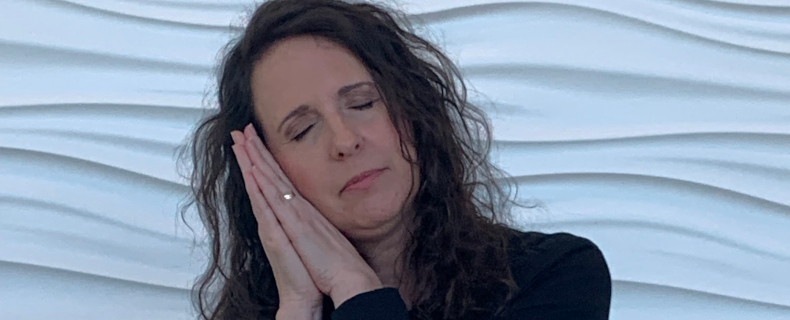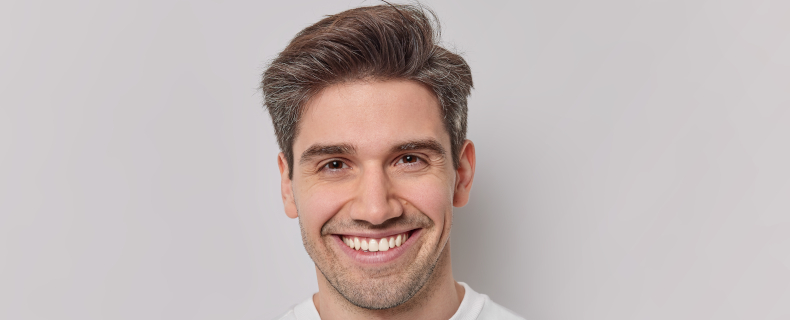Louisville, KY
A good night’s sleep is an important part of overall health and well-being. Sleep helps restore the mind and physical body, supports cognitive function and boosts the immune system. Getting a full night of sleep also helps regulate mood, memory and metabolic processes. Without sleep, the human body experiences cognitive impairment, weakened immune function and increased stress levels, which can lead to mood disorders, memory issues and a higher risk of chronic illnesses. But did you know that lack of sleep can also negatively impact your oral health? Today, our airway dentist in Louisville is closely examining the effect that sleep deprivation and mouth breathing at night can have on your oral health — and ways our dental practice can help.
How can poor sleep hurt oral health?
- Saliva production — A lack of quality sleep reduces saliva production. Saliva is the mouth’s natural defense against food particles that attract harmful bacteria. That bacteria creates cavity-causing acids in the mouth that lead to plaque then tartar and, finally, tooth decay and gum disease. Sleep promotes the production of saliva, particularly during the deeper stages of sleep, thereby protecting your teeth against cavities and gum disease.
- Bruxism — Bruxism is the clenching and grinding of teeth, especially at night. It is often linked to stress and poor sleep. People who don’t get adequate sleep or suffer from sleep disorders like obstructive sleep apnea are more likely to grind their teeth at night, leading to tooth wear, fractures and temporomandibular joint (TMJ) disorder, a disorder of the muscles, tendons and ligaments in the jaw. By prioritizing good sleep, you can reduce the likelihood of bruxism and protect your teeth from damage.
- Gum disease — Poor sleep leads to increased levels of inflammation in the body, which is a significant risk factor for gum disease. Studies have linked a lack of sleep to periodontitis, the most severe form of gum disease that, if ignored, leads to tooth loss.
How can I help promote quality sleep?
Our Jeffersonville family dentist who treats sleep apnea — a sleep breathing disorder that causes repeated interruptions in sleep — has compiled the following list of ways you can help ensure you receive a good night’s sleep:
- Maintain a consistent sleep schedule — Sleep specialists and our dentist recommend going to bed and waking up at the same time every day, even on weekends. This helps regulate your body’s internal clock, improving your quality of sleep.
- Create a relaxing bedtime routine — Many people benefit from creating a relaxing routine that lets the body and mind know it’s time to wind down for the day. Relaxing activities include taking a warm bath, reading, meditating or practicing relaxing stretches.
- Unplug — Blue light emitted by screens on your phone, tablets and computers can interfere with sleep, so our sleep apnea dentist in Shepherdsville suggests no screens for an hour before bed.
- Create a comfortable sleep environment — A cool, dark and quiet room is most conducive to sleep. Investing in a good mattress and comfy pillows can also make a significant difference in the quality of your sleep.
- Watch what you eat — Avoid large meals, caffeine and alcohol before bed because these can disrupt your sleep. If you’re hungry, choose a light snack, and be sure to stay hydrated with water throughout the day.
What if I still wake up feeling tired?
If you experience extreme daytime sleepiness even after following the above tips, then let’s talk about obstructive sleep apnea, a common but dangerous sleep breathing disorder characterized by loud, persistent snoring and frequent pauses in breathing — sometimes 100 or more times a night — during sleep. These pauses are often followed by gasping or choking noises. Sleep apnea happens when the muscles in the throat relax at night, creating a partial or complete blockage of the airway.
How is sleep apnea treated?
We treat mild to moderate cases of OSA with oral appliance therapy rather than the more cumbersome continuous positive airway pressure (CPAP) machines. Our Louisville sleep apnea dentist will custom-fabricate oral appliances — similar to a mouthguard — for you to wear at night. The appliance repositions the jaw and tongue to keep the airway open at night.
Sleep apnea treatment in Louisville, Jeffersonville, and Shepherdsville, KY
Many of our patients with sleep apnea have found comfort — and a good night’s sleep — with the use of oral appliance therapy. We want to help you, too. If you’re suffering from a lack of sleep, or if you’ve been told you’re a persistent snorer, give Exceptional Dentistry a call at 888-918-3336, or reach us online to schedule an appointment today.
Book Your Consultation
We are excited you found us and we hope you will take the first step to join our family.




